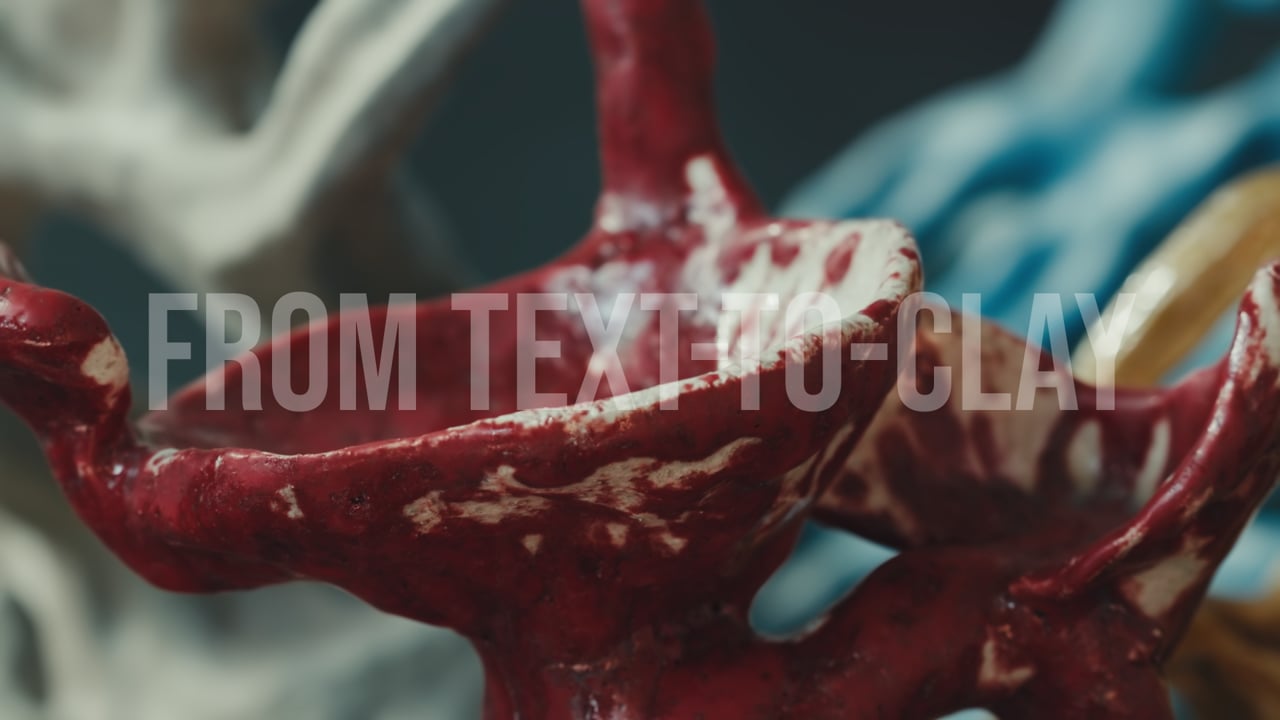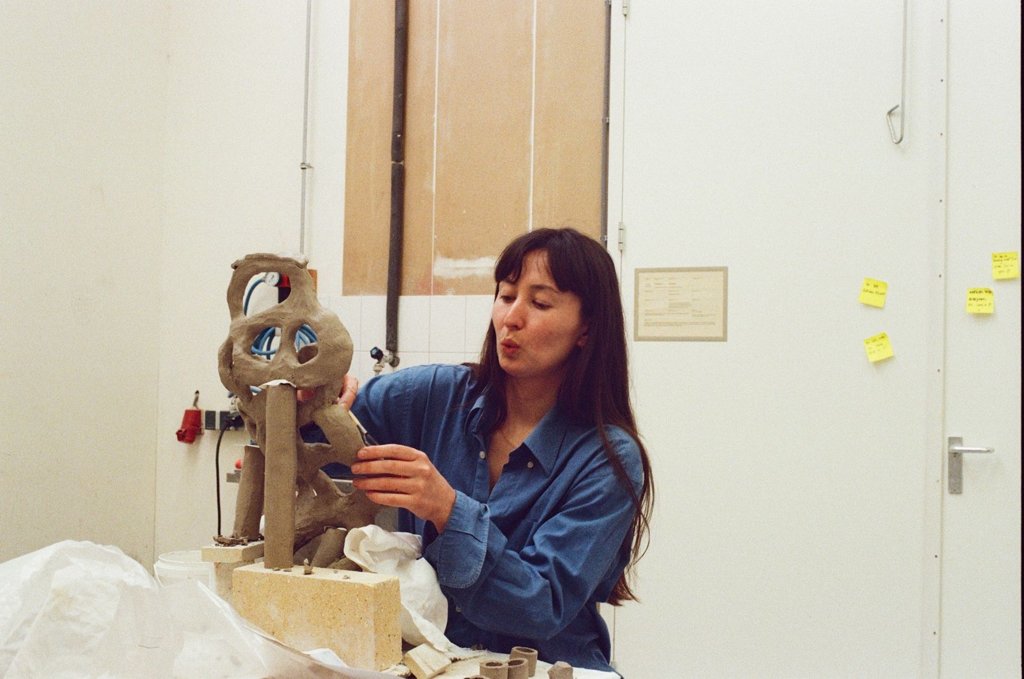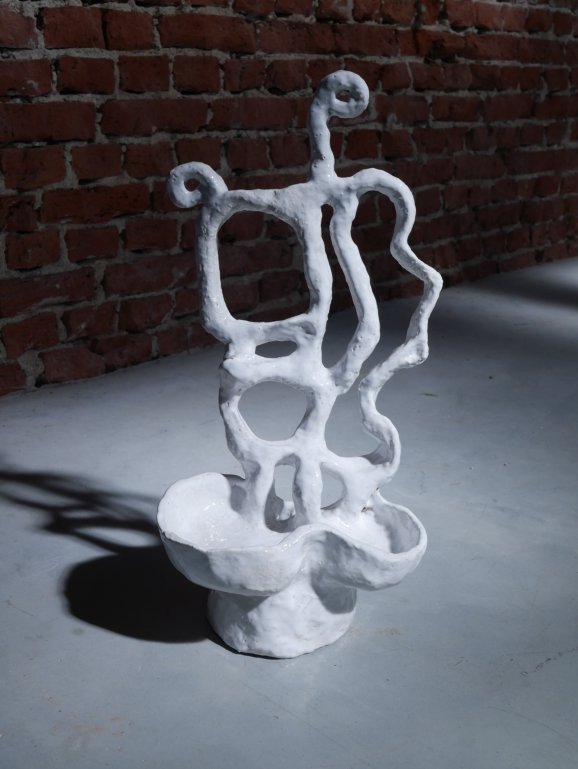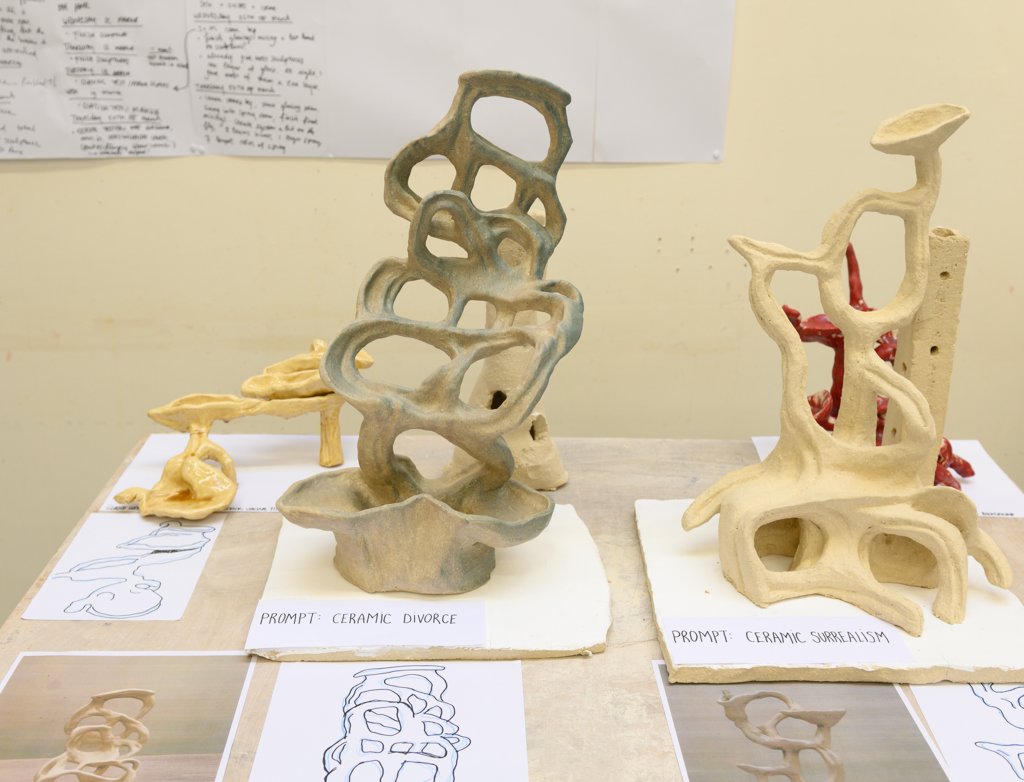From Text to Clay shows how ancient ceramic practices can teach us new ways to work with AI, using clay's slow, unpredictable transformations to develop more thoughtful approaches to machine learning that prioritize reflection over speed. Rather than letting AI accelerate creative work, the project demonstrates how ceramic temporality can slow down AI interaction, creating space for a deeper understanding of both materials, and suggesting more meaningful futures for creative practice with AI tools.
Direction & Editing : Marica De Michele
Director of Photography : Jurica Marković
Music : Ivna Jurković
Production Assistant : Clara Gustafsson




